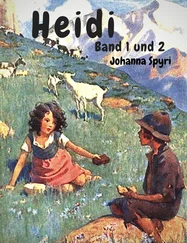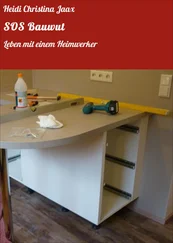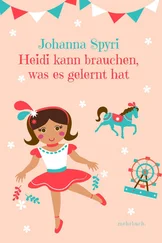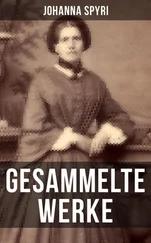Johanna Spyri - Heidi
Здесь есть возможность читать онлайн «Johanna Spyri - Heidi» — ознакомительный отрывок электронной книги совершенно бесплатно, а после прочтения отрывка купить полную версию. В некоторых случаях можно слушать аудио, скачать через торрент в формате fb2 и присутствует краткое содержание. Год выпуска: 2009, ISBN: 2009, Издательство: Penguin Books Ltd, Жанр: Детская проза, на английском языке. Описание произведения, (предисловие) а так же отзывы посетителей доступны на портале библиотеки ЛибКат.
- Название:Heidi
- Автор:
- Издательство:Penguin Books Ltd
- Жанр:
- Год:2009
- ISBN:9780141919010
- Рейтинг книги:2.5 / 5. Голосов: 2
-
Избранное:Добавить в избранное
- Отзывы:
-
Ваша оценка:
- 60
- 1
- 2
- 3
- 4
- 5
Heidi: краткое содержание, описание и аннотация
Предлагаем к чтению аннотацию, описание, краткое содержание или предисловие (зависит от того, что написал сам автор книги «Heidi»). Если вы не нашли необходимую информацию о книге — напишите в комментариях, мы постараемся отыскать её.
With a delightfully nostalgic introduction by award-winning author, Eva Ibbotson.
Heidi — читать онлайн ознакомительный отрывок
Ниже представлен текст книги, разбитый по страницам. Система сохранения места последней прочитанной страницы, позволяет с удобством читать онлайн бесплатно книгу «Heidi», без необходимости каждый раз заново искать на чём Вы остановились. Поставьте закладку, и сможете в любой момент перейти на страницу, на которой закончили чтение.
Интервал:
Закладка:
18
Winter in Dörfli
The snow lay so deep on the mountain that winter, that Peter’s hut was buried in it up to the window sills. Fresh snow fell almost every night, so on most mornings he had to jump out of the living‐room window. If the frost in the night had not been enough to harden the surface, he stepped deep into soft snow and then had to battle his way out with feet and hands and even head. Then his mother handed him out a big broom, with which he cleared a path to the door. This had to be done skilfully, piling the snow well away from the entrance, so that there was no likelihood of a great mass of soft snow falling into the house when the door was opened. There was also the danger that hard frost might turn soft snow into a solid wall, and so barricade the door — and only Peter was small and agile enough to squeeze through the window.
But when it froze in the night, Peter had a grand time, for his mother used to hand him out his little sleigh, and on this he almost flew down to Dörfli — or wherever he had to go — for the whole mountainside became one wide, unbroken sleigh run.
Uncle Alp would have had to clear the snow from his hut just as carefully, but he had kept his promise and, as soon as the first snow fell, he took Heidi and the goats down to the village for the rest of the winter.
Near the church and the parsonage in Dörfli, there was a great rambling, ramshackle place, almost in ruins. It had once belonged to a soldier, who had fought bravely in Spain and acquired a considerable fortune. He had come back to Dörfli, meaning to settle down there for the rest of his life, and had built this great house, but alas, he had lost the taste for quiet living and soon went away and never returned. The house stood empty and uncared for. When he died many years later, it came into the hands of a distant relative in the valley, but by then it was in such a bad state that the new owner was not inclined to spend money on it. He let it to poor people for very little rent, but made no attempt to repair it. That was years before Uncle Alp had come to Dörfli with his son, and they had lived in it for a time. Then it stood empty again, with great holes and cracks in roof and walls, and in winter (always long and severe up there), the icy winds blew right through the place. Now, after Uncle Alp had made up his mind to pass the winter in Dörfli, he rented the old house again. Being handy with his tools, he knew he could make it habitable, and he went down often during the autumn to work on it, and in the middle of October he and Heidi went to live there.
At the back of the house there was a high vaulted building which had once been a chapel, though it had gone to rack and ruin. One whole wall and most of another had fallen down, ivy was growing through a window which had lost all its glass, and the roof looked as though it might collapse any day. The door was missing between this and the room next to it, which was also very dilapidated. Grass was growing between the stones of its paved floor, the walls were crumbling and part of the ceiling was down. The rest only held because strong pillars supported it. Uncle Alp put up some wooden partitions here and laid straw on the floor to make winter quarters for the goats. Beyond this room was a passage half in ruins, and with cracks in the outer wall so wide you could see the sky and the fields through them. But at the end of all this was a solid oak door, still fixed on its hinges, leading to a fine room, in quite good condition. It had panelled walls, and in one corner was an enormous white tiled stove, reaching nearly to the ceiling. It was decorated in blue with pictures of a huntsman with his dogs in a wood surrounding an old castle, and a fisherman dangling his rod in a calm lake beneath some oak trees. A seat was built on conveniently all round the stove, and as soon as Heidi came into the room with her grandfather, she ran straight over to it and sat down to look at the pictures. She slid along it until she reached the back of the stove, and came to a space between it and the wall, which might have been intended for storing apples, but which now held her bed. It had been brought from the loft, just as it was, with its mattress of hay, the sheet, and the heavy linen cover. Heidi was delighted to find it there.
‘Oh, Grandfather,’ she exclaimed happily, ‘my room! Isn’t it lovely? Where are you going to sleep?’
‘I thought you ought to sleep close to the stove, so that you won’t freeze,’ he told her. ‘Now come and see my room.’ She followed him into a smaller one, where he had set up his bed. There was a second door beside it, which Heidi opened and saw a huge kitchen, bigger than any she had ever seen. There was still much to be done to it, though Grandfather had patched it till the walls looked as though they were made up of a lot of little cupboards. He had mended the heavy old outer door too, with nails and screws so that it was possible now to shut it, and that was a comfort for outside lay ruins, hidden in tall weeds where beetles and spiders lurked.
Heidi liked their new home very much, and she had explored every nook and corner of it by the time Peter came to visit her next day. She took him over it, and would not let him go until he had seen all its surprises. She slept very well in her cosy corner, though at first she still thought herself back in the hayloft when she awoke in the mornings, and started up to see if the fir trees were so quiet because snow had fallen in the night. Then, remembering she was not in the hut, she used to feel almost stifled for a moment, though that went as soon as she heard her grandfather talking to the goats next door, and the goats bleating as though calling her to get up. Then, knowing that, whatever the place, she was still at home, she would jump out of bed and hurry out to the goats as quickly as she could.
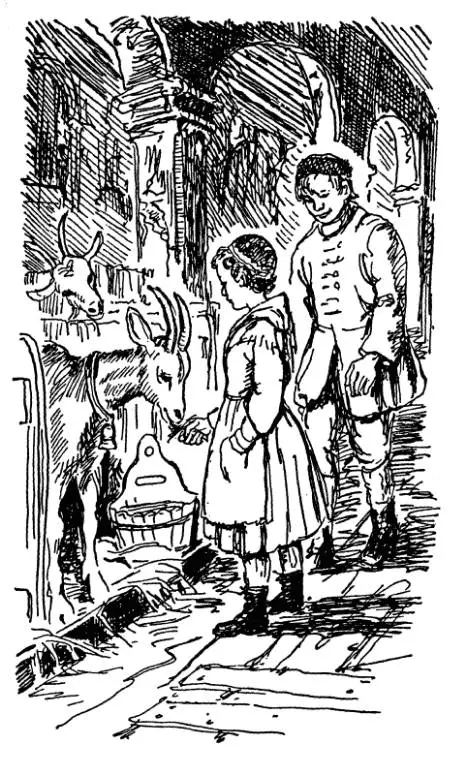
On the fourth morning there, she said, ‘Today I must go and see Grannie. She’ll be missing me.’
But grandfather would not hear of it. ‘You can’t go today nor tomorrow,’ he told her. ‘The snow is deep on the mountain and still falling. It will be as much as Peter can do to get through, and a little thing like you would be buried in no time and no one would be able to find you. You’ll have to wait until the snow freezes hard, then you’ll be able to walk over it easily.’
She did not like having to wait, but there was much to do and she hardly noticed how the days flew by. She went to school, for one thing, and worked hard to learn all she could. Peter, on the other hand, was hardly ever there, but the teacher was a kind‐hearted man, who only said, ‘So Peter’s away again. School would do him good, but I expect the snow is too deep for him to get here.’ But Peter came down easily enough in the evening to visit Heidi.
After a few days of snow the sun shone again, glistening on the white ground, but soon disappearing again behind the mountains as though it did not like the winter scene nearly as well as the grass and flowers of summer. But when it was dark, the moon shone down on the cold snow and the frost came, so that next morning the air was crisp and the whole mountainside sparkled like crystal. Then Peter, expecting to sink into soft snow as usual, jumped out of his window and found himself spinning over the frozen surface like a riderless sleigh, but he picked himself up and went stamping about to see if the snow was really hard everywhere. He was delighted to find he could not kick up more than a tiny fragment of ice here and there. The hillside was frozen hard, and at last Heidi would be able to come up to see them. He went indoors and gulped down some milk, put a piece of bread in his pocket and announced, ‘I’m going to school.’
Читать дальшеИнтервал:
Закладка:
Похожие книги на «Heidi»
Представляем Вашему вниманию похожие книги на «Heidi» списком для выбора. Мы отобрали схожую по названию и смыслу литературу в надежде предоставить читателям больше вариантов отыскать новые, интересные, ещё непрочитанные произведения.
Обсуждение, отзывы о книге «Heidi» и просто собственные мнения читателей. Оставьте ваши комментарии, напишите, что Вы думаете о произведении, его смысле или главных героях. Укажите что конкретно понравилось, а что нет, и почему Вы так считаете.




